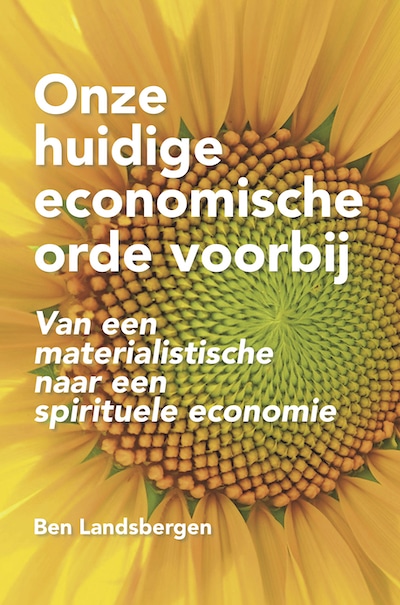Onze huidige economische orde voorbij
Van een materialistische naar een spirituele economie
Have you ever wondered what principles underlie our current
economic order is based? An important question, because we are confronted with the consequences of the current system on a daily basis.
This publication starts with a critical analysis of our current economic system. What is (the purpose of) economics? Which view of man is common in economics? Then the ideas behind the following core concepts from economics are discussed: scarcity and possession, limitless growth, competition, free market and market equilibrium, production factors, price and
price mechanism, and money. It is important to make an analysis of these topics, because they are currently often taken for granted in social discussions.
These concepts are also illuminated from the perspective of Theosophy. The Esoteric Philosophy or Theosophy is described as the synthesis of
science, philosophy and religion. Such an approach provides a broad analysis of our current economic system, in which not only scientific aspects but also philosophical and religious aspects are taken into account.
offer come.
A separate chapter deals with the contours of a spiritual society, and therefore also of an economy based on theosophical principles.
In addition to the prevailing views within economics, including
their consequences, various economic developments, initiatives and ideas that are based on a different economic model are discussed. Within economic science, all kinds of hopeful developments are taking place. This publication is intended for those who are convinced that together we are able to create a much better future for humanity and planet earth as a whole. A growing group of people are now convinced that the prevailing (materialistic) views on
economic failure in solving problems,
for example in the area of fair distribution of wealth, economic
growth and environmental pollution. But how do we organize our society? This book contains various ideas about what our society could look like if we could leave the current economic model behind us.
Table of contents
Introduction
What is economics? – What is the human view in economics?
What is (the purpose of) economics? – Amoral view of man in economics – Has economics always been an amoral science? – Various positive developments within economics – Which elements belong to the field of economics? – What is ethics? What are laws?
Scarcity and possession
Scarcity – Possession – Poverty
Limitless growth
Linear and circular economy – Economic growth does not automatically lead to more prosperity for everyone
Competition, free market and market equilibrium
Competition versus cooperation – Free market – Market equilibrium – Market downsides – Market failure – Our current economic system by definition generates a continuous army of 'losers' – Distinction between a selfish free market and a spiritually free market
Factors of production
What are production factors? - Flexibilization of the labor market - Restoring craftsmanship and professionalism - Environmental issues
Price and price mechanism
Are Value and Price Synonymous? – Prices of products and economic decisions are not value-free – Buying a product is not a neutral matter. How do you position yourself as a consumer? – Gross Domestic Product (GDP) – Gross National Happiness (GNH) –
Allowing non-financial values to prevail over financial ones
Money
Forms of money – Value of money is a kind of 'belief' – The only quality of money is its quantity – Money as a means, money as an end – Criminals and 'good' citizens – Managing one's own life can degenerate into managing money – Financial choices are not neutral – Is money indispensable? – Direct and indirect barter economy – Give-away shops, commodity banks, food banks, recycling centres
Contours of a spiritual economy
Principles of a spiritual society – What is a spiritual economy? Which human image fits it? – Harmony between material, mental and spiritual needs as
remedy against the economic view of scarcity and possession – Limitless growth of consciousness based on cyclicity versus limitless material growth based on linearity – Cooperation for the benefit of the whole versus competition, free market and market equilibrium – Respect for people, animals, plants, minerals versus production factors in the narrow sense – Product including 'story' versus price and price mechanism – Money: from goal to means to abolition – What is the role of government and politics?
Conclusion
Characteristics of the Materialistic and the Spiritual Economy
in a nutshell – The mentality of man(kind) makes the difference – Many economic concepts are well-chosen marketing terms – People are addressed as (selfish) individuals – Various positive developments – What does our future look like?
Brief index
Additional information
| Weight | 370 g |
|---|---|
| Dimensions | 240 × 160 × 15 mm |
| Writer | Landsbergen, B. |
| Edition | Paperback |
| Pages | 235 |
| ISBN | 978-90-70163-75-4 |
| Language | Dutch |
| Publisher | Stichting I.S.I.S. |

